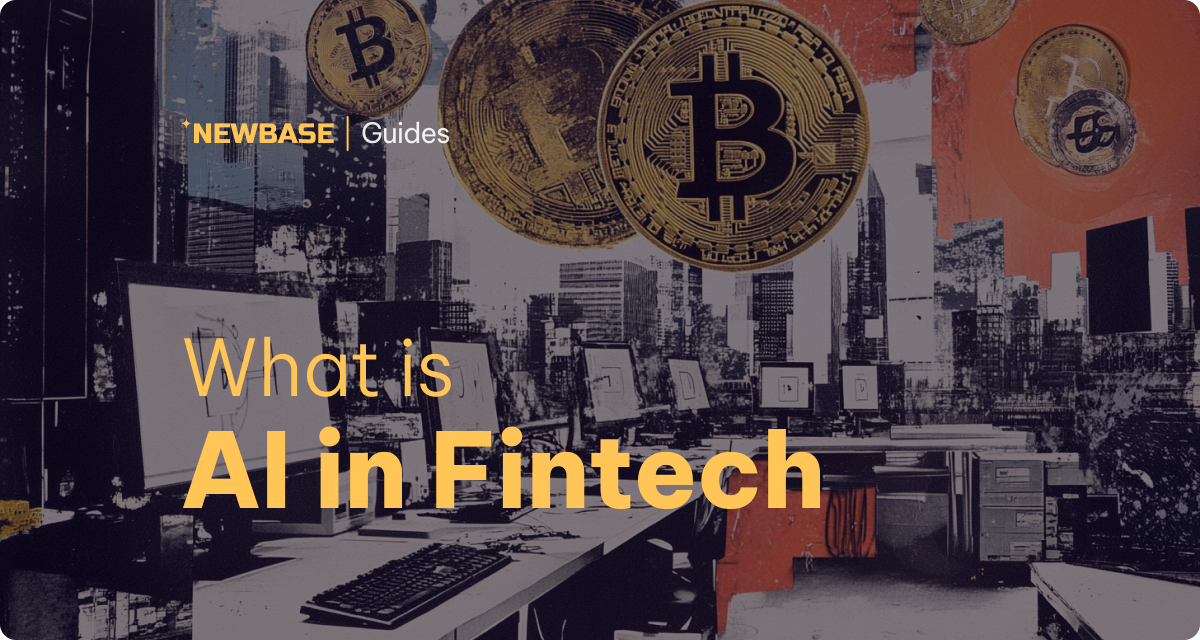AI in Fintech: A Revolution Brewing in Financial Services

The financial technology landscape, or fintech for short, has been rapidly evolving over the past few decades. From the introduction of the first ATM in 1967 to the rise of mobile banking apps like Venmo and Zelle, technology has fundamentally reshaped how we interact with our finances. Fintech has democratized access to financial services, streamlined everyday transactions, and injected a much-needed dose of innovation into the traditionally staid world of finance.
However, the current wave of fintech innovation is being fueled by a powerful new engine: Artificial Intelligence (AI). AI has the potential to further revolutionize fintech, transforming everything from risk management and fraud detection to customer service and personalized financial advice.
The Evolution of Fintech: Paving the Way for AI
The integration of AI into fintech didn’t happen overnight. Banks and financial institutions have been steadily automating and digitizing processes for decades. This gradual shift laid the groundwork for AI’s disruptive potential.
Early fintech solutions primarily relied on a combination of application programming interfaces (APIs), mobile applications, and web-based services. This enabled secure data sharing between banks and customers, while offering a seamless user experience. Many innovative startups emerged in the fintech space, often collaborating with established financial institutions to bring their ideas to life.
As the financial sector became increasingly digital, the volume of data generated from transactions and other services skyrocketed. This vast trove of data presented both a challenge and an opportunity. AI emerged as the key to unlocking the hidden insights within this data, paving the way for a new era of intelligent fintech solutions.
AI’s Transformative Power in Fintech
AI can streamline financial processes, enhance business partnerships, and unlock a range of benefits for both financial institutions and their customers. Here’s a closer look at how AI is transforming the fintech landscape:
- Data-Driven Decision Making: AI algorithms are adept at analyzing massive datasets, identifying patterns, and predicting future trends. This empowers financial institutions to make informed decisions regarding risk management, credit assessments, and market movements.
- Enhanced Security: Fraudulent activities are a constant threat to financial institutions. AI-powered systems with advanced anomaly detection capabilities can analyze transactions in real-time, identifying suspicious patterns and preventing fraud attempts before they occur.
- Personalized Customer Service: AI-powered chatbots equipped with natural language processing (NLP) can provide 24/7 customer support, addressing common inquiries and offering personalized recommendations. This not only improves customer satisfaction but also frees up human agents to handle more complex issues.
- Automated Processes: AI can automate a wide range of tedious and time-consuming tasks, such as data entry, invoicing, and payment processing. This allows financial institutions to operate more efficiently and reallocate resources towards higher-value activities.
- Algorithmic Trading and Portfolio Management: AI-powered algorithms can analyze vast amounts of financial data, including news, market sentiment, and historical trends. This empowers investors and financial institutions to make informed investment decisions and develop data-driven trading strategies.
Who Needs AI in Fintech?

The benefits of AI in fintech extend far beyond traditional financial institutions. Here’s a breakdown of the various stakeholders who can leverage AI-powered solutions:
- Everyday Customers: AI-powered personal finance tools can analyze spending habits and investment preferences, helping individuals make smarter financial choices.
- Financial Institutions: Banks, investment firms, and other financial institutions can leverage AI to improve risk management, enhance customer service, and optimize their financial operations.
- Developers: Developers can utilize AI tools and APIs to build innovative fintech solutions that address specific market needs.
- Analysts and Strategists: AI-powered data analysis can provide valuable insights for industry analysts and strategists working in the fintech sector.
- Risk Managers: AI can assist risk managers in identifying and mitigating potential financial risks, contributing to a more stable and secure financial ecosystem.
Real-World Examples of AI in Action
Several financial institutions have already begun exploring the potential of AI to enhance their offerings. Here are a few examples:
- HSBC is utilizing AI to boost its predictive analytics capabilities, helping identify promising stocks with high-growth potential.
- Many banks are implementing AI-powered virtual assistants for customer service, offering 24/7 support and personalized financial advice.
- Robo-advisors powered by AI are becoming increasingly popular, providing personalized investment recommendations and automated portfolio management services.
Benefits and Considerations for AI in Fintech
The integration of AI in fintech offers a multitude of benefits, including:
- Cost Savings: AI can automate tasks, reduce operational costs, and minimize human error, leading to significant cost savings for financial institutions.
- Improved Customer Experience: AI-powered tools can personalize customer interactions, provide 24/7 support, and offer tailored financial solutions.
- Enhanced Security: AI can detect fraudulent activities more effectively,
The Road Ahead: Challenges and Opportunities
While the potential of AI in fintech is immense, there are several challenges to overcome:

- Data Privacy and Security: Financial institutions handle sensitive customer data. Ensuring the privacy and security of this data is paramount. Robust data protection measures must be in place to prevent breaches and unauthorized access.
- Regulatory Compliance: The financial industry is heavily regulated, and AI-powered solutions must adhere to strict compliance standards. Navigating the complex regulatory landscape can be challenging.
- Ethical Considerations: AI algorithms can perpetuate biases present in the data they are trained on. It’s crucial to develop AI systems that are fair, unbiased, and transparent.
Despite these challenges, the future of AI in fintech is bright. As AI technology continues to advance, we can expect to see even more innovative applications that will transform the financial industry. AI has the potential to make financial services more accessible, efficient, and secure for everyone.